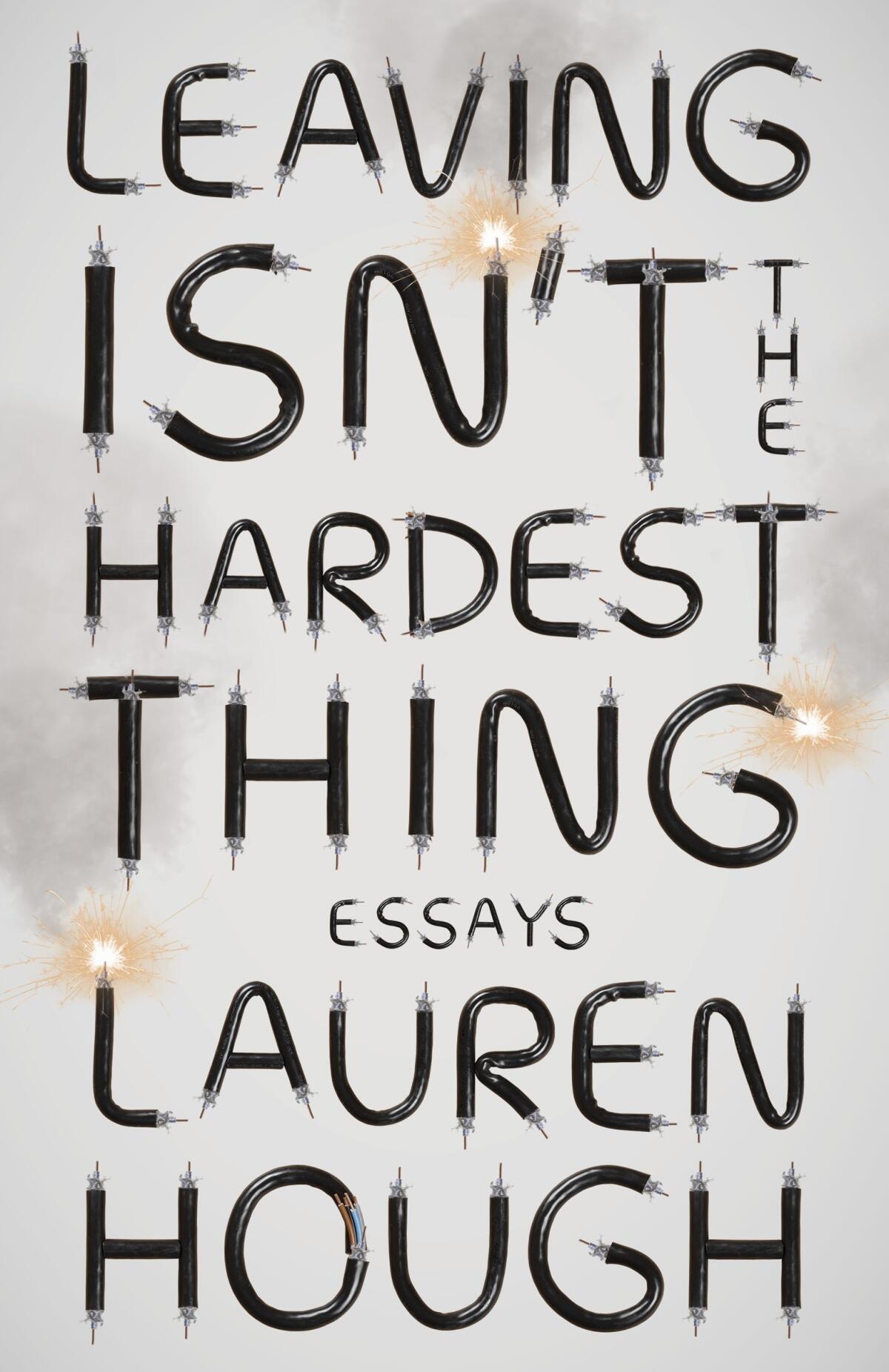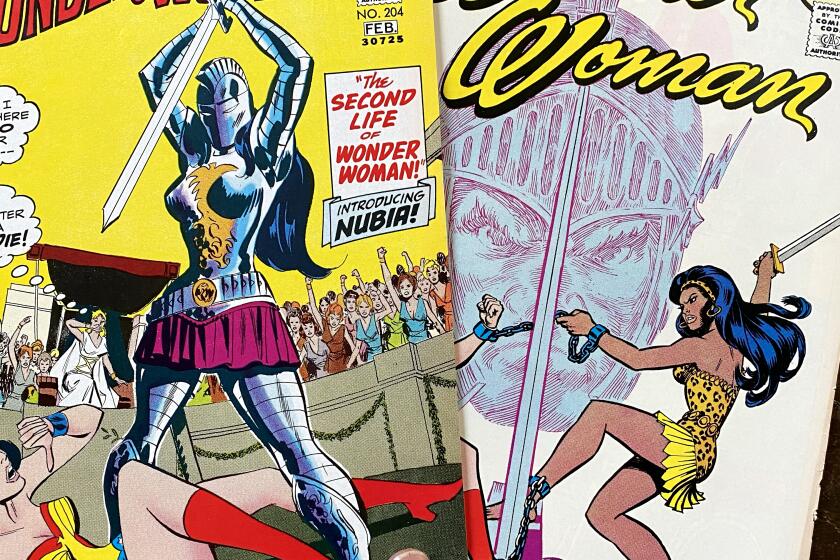Author Lauren Hough loses Lambda Award nod over tweets with ‘troubling hostility’

- Share via
NEW YORK — Judges for a prominent LGBTQ literature award withdrew a planned nomination for Lauren Hough’s acclaimed essay collection, “Leaving Isn’t the Hardest Thing,” after the author used sharp and sometimes profane language in Twitter exchanges with critics of a novel she had expressed admiration for.
Hough was supposed to be a Lambda Award finalist for the lesbian memoir category, one of 24 announced last week by the Lambda Literary organization. But her name did not appear. In a letter sent to her publisher, Penguin Random House, shortly before the announcement and shared this week with the Associated Press, Lambda cited a series of tweets (some deleted) from early this month that showed a “troubling hostility toward transgender critics and trans-allies” who had challenged the premise of Sandra Newman‘s upcoming novel “The Men.”
“We have to hold the line in how we communicate with each other,” Lambda co-executive director Cleopatra Jach Acquaye said in a recent telephone interview. “We want people to treat each other with respect and treat each other with dignity.”
Hough, who has written about the controversy on Substack, declined further comment Wednesday.
Newman’s book, scheduled for June, imagines a post-male society in which people with the Y chromosome have disappeared. Her publisher calls “The Men” a “gripping, beautiful, and disquieting novel of feminist utopias and impossible sacrifices that interrogates the dream of a perfect society.” On Twitter, Hough wrote that she had read an early copy and could hardly find the words for how good it was, emphasizing “good” with an expletive.
In screenshots viewed by the Associated Press, Newman describes “The Men” on Twitter and one follower responds: “Pretty sure this terf plot has been published four or five times already,” using the term for “trans-exclusionary radical feminist.”
June is Pride Month. Celebrate and learn about LGBTQ organizations and creatives through our list.
Responds Hough: “Pretty sure you don’t know what the (expletive) is in a book you haven’t (expletive) read.”
In another exchange, a book critic praises Hough for her book and notes that “revered writers” had won awards after saying worse things. The critic also writes that Hough was “definitely aggressive” and expresses regret that “she said things like that.”
“I’m not sorry I said things like that,” Hough answers.
The letter from Lambda to Penguin Random House refers to “at least a couple of documented instances” when Hough used “her substantial platform — due in part to her excellent book — to harmfully engage with readers and critics alike.”
Last year, Hough criticized some reviews she received on the social media platform Goodreads, tweeting in derogatory terms about readers who gave her book four stars (out of a possible five) to “show they’re super tough reviewers who need to, like, fall in love, you know? Anyway, no one likes you.”
In the 1970s, Wonder Woman’s Black twin sister Nubia lent herself to my imagination and honed my ability to envision what justice looked like.
On Substack, Hough wrote recently that Newman had been an invaluable supporter while she was working on “Leaving Isn’t the Hardest Thing,” her debut book, and that the two had discussed how Newman’s novel could “recognize the reality of transgender people.”
“Other books that started from this premise — all the men disappear — have erased the existence of trans people, and it was important to her not to do that, to be as sensitive as possible,” Hough wrote. “So when I saw people assuming that simple idea was the entirety of the plot, I told them to read the book before assuming the worst. For this, I was labeled a TERF.”
The news about Hough, which the author herself made public last weekend, has continued the ongoing debate about “cancel culture” and whether Hough was unduly punished (or was exploiting “cancel culture” for publicity). Meanwhile, she was among the finalists announced this week for another leading LGBTQ prize, the Triangles. A spokesperson for the Publishing Triangle, which presents the awards, said there were no plans to withdraw her nomination.
More to Read
Sign up for our Book Club newsletter
Get the latest news, events and more from the Los Angeles Times Book Club, and help us get L.A. reading and talking.
You may occasionally receive promotional content from the Los Angeles Times.











